Going through depression can be disheartening. Mental health is just as important as physical health, even though the symptoms are less obvious. Going through depression can make you feel down. You feel like you can’t sleep, don’t have an appetite, and that everything is a dark place to live as when going through depression. People who go through this regularly may think they have no hope for the future or any meaning in their life. But there is hope, and it comes in the form of a variety of plants that people used for centuries for their ability to help with mild depression. This article will focus on the positive effects of using plant extracts to treat symptoms of mild to moderate depression.
Mild to moderate depression
Mild to moderate depression is common. It affects millions of people around the world, but it is not a big problem. But for some people, it can affect their lives and they should pay attention to the symptoms of depression. The most common symptoms that affect physical health include shortness of breath, sleep disturbances and fatigue. Other symptoms are feelings of guilt and shame and low self-esteem.
Moving Beyond it

It may not be as severe as major depression but it can still have a significant impact on your life. It can drain you of energy and leave you feeling hopeless. There are ways to treat depression that does not require medication. Some herbs can help you feel better. They improve your physical and mental health without any of the bad side effects of medication. However, always consult your doctor before taking them.
The traditional medication options for depression include selective serotonin reuptake inhibitors (SSRIs), tricyclic antidepressants (TCAs) and monoamine oxidase inhibitors (MAOIs). These pharmaceuticals offer limited efficacy, need daily use and are associated with a host of side effects.
Causes of depression

The exact reason that people get depressed unknown, but it could have something to do with the chemicals in their brain being imbalanced. There are both mental and physical reasons that could cause it. In the brains of depressed people, there is less of a chemical called serotonin. This chemical makes you feel happy. It also affects memory and learning. Depressed people have low levels of certain brain chemicals. They need to use coping mechanisms to combat their emotional and mental suffering. As it is impossible to completely cure this condition without proper therapy and medications, one should try addressing it with the help of nature. Herbs can be good for you. They are a good alternative to the medicine that you can use to alleviate symptoms and improve mood.
What role do plants play in the emotional health of humans?

Plant-based phytonutrients can help to reduce anxiety, stress and depression. Depression is a common problem that affects millions of people worldwide. An estimation is that between 10% and 20% of the population will experience depressive symptoms at some point during their lives. In comparison, the lifetime prevalence of major depressive disorder (MDD) is about 16% in men and 24% in women.
Plants that can act as antidepressants
There are a variety of plants that can help with milder depression and address physical and mental symptoms associated with it. They act as antidepressants by naturally alleviating some of the milder symptoms of depression. You can take these plants as supplements or natural medicine to aid your physical and mental health. Using them can help you achieve a healthy lifestyle. Here is a list to help you get started:
St John’s Wort
One of the most effective herbal remedies is St. John’s wort, a herb that people used to treat depression and anxiety and other mood disorders for centuries.
It is a green plant with small yellow flowers that grow in meadows all across Europe. Collect its leaves and flowers during summer when the plant is at its peak and then dry them under the sun. The dried leaves last for up to 5 years and used in tea, as an infusion or smoked. They act as natural medicine.
The taste of St John’s wort is quite bitter but the benefits it offers are often invaluable. This treatment is for people who have milder depression. It helps people feel better and stop feeling sad and guilty.
The herb is also good for relieving stress. It calms the nervous system down. It also helps with sleep, but if you don’t need that then it can help to regulate your moods and help you have a more positive outlook on life. You need to be careful when gathering this herb as it is highly toxic to the skin. Using too much of the herb can cause severe skin irritation and even organ failure in rare cases.
Lavender

Lavender is a plant with purple flowers that’s good for cooking and making fragrances. It too can act as a form of antidepressant and mood improver.
It is also a natural remedy for treating some forms of depression. Studies by researchers have found that lavender oil can help treat milder depression, but not severe or chronic depression. One theory on how lavender works suggests that it balances certain chemicals in the brain.
The belief is that lavender oil can balance chemicals like serotonin and dopamine to help prevent depression and keep them at healthy levels. Many studies have looked at how lavender works to treat milder depression. In one study, people were given dried lavender flowers or a placebo for four weeks. The subjects who took the lavender flowers reported decreased depression, anxiety and pain.
Passionflower
A plant that can help with milder depression is Passionflower or Passiflora incarnata. It is a root dwelling herb that grows in tropical parts of North, Central and South America. The calming effects of the herb are due to its alkaloids. These are things that act on the nervous system by boosting serotonin levels in the body.
The passion flower’s sedative properties alleviate some symptoms of depression because it enables a peaceful sleep once you start using it.
People used passionflower for hundreds of years in the treatment of anxiety and insomnia. In addition, passionflower helps promote a healthy state of mind which is important when dealing with milder depression. This is one of the top herbs to incorporate into your diet if you suffer from it. It can be used and bought as a supplement.
Chamomile
Chamomile tea has long been known as a natural stress reliever. Its tea is not only a great way to relax but also helps regulate sleep patterns and provide relief from milder depression.
Do indoor plants help with mild depression and anxiety?

I guess instinctively this is something we all know that greenery can lift moods and benefit overall mental health. Plants are even said to help people with mild depression. . We all feel better around nature. But feeling better is one thing, relieving depression is quite another. Therapy and medication are the main routes taken for helping with depression, but more things can be done alongside them. Always ask your doctor for advice before taking something unprescribed to make sure it doesn’t clash with your medication or medicine.
According to Science
Researchers conducted a study that compared activated regions of the brain while viewing pictures of both urban and rural environments. RESULTS? When showIng a person urban-related pics, this activated the amygdala (the region that regulates Fear and Anger). Suggesting these pictures caused a spike in arousal and stressful feelings. However, viewing rural scenery activated the basal ganglia ( a region of the brain related to pleasure).
Numerous tests also showed the link between exposure to natural environments and decreased anxiety and depression. The tests also confirmed Exposure to natural elements (e.g., green spaces) can reduce the impact of stress, increase psychological well-being, and support recovery from illness.
The link between plants and mental health
One explanation for the link between natural elements exposure and improved mental health involves mechanisms that reduce mental fatigue. Natural elements have a restorative effect on mental fatigue. When the brain is exposed to built environments, it becomes fatigued and requires rest and recuperation to function effectively. Exposure to nature involves indirect attention, characterized by fascination. natural elements (such as greenery, savannah-like landscapes, and clear running water) have an automatic calming effect on physiological arousal.
Spending time in nature

Spending time in nature is a great way to combat mild depression symptoms. The evidence suggests that it can even be as effective as an antidepressant when dealing with these common depressive thoughts and emotions. A study by the University of Essex found that green exercise, such as walking through parks and forests, can help people with both their physical health and mental wellbeing.
Plants are beneficial to humans and can help with depression symptoms. Nature is also good for us. It soothes our stress levels. Plants help with illnesses related to hormones, such as anxiety and high blood pressure. Plants make you feel better if you are around them.
How to obtain the benefits?

Science happily shows that Psychological benefits can be obtained
- indirectly (e.g. looking at natural scenery through a window),
- representationally (e.g. Through a picture or photograph),
- directly (having plants or greenery directly around you).
This means that just looking at pictures of wildlife and greenery can boost your mood. However, having the real deal around you and experiencing the benefits of plants in your space is going to do so much more for your overall wellbeing.
No Outdoor space? No Problem!
But what about those of us who live in bustling towns and cities? Are we forever destined to have high amounts of stress and variations of depression? Fear not! Although we can’t bring the beach to our houses, we can begin to fill them with plants and turn our homes into our own green spaces—triggering those mood-lifting sensations and calming effects as we look at them and care for them. Adding plants to our homes is especially beneficial for all those living in ever-increasingly polluted cities.

Herbal remedies

If you are suffering from mild depression and want to find an effective treatment without harsh effects, herbal remedies may be the perfect remedy. By incorporating herbs into your diet, you will re-establish balance in brain chemistry that can help reduce anxiety and stress-related symptoms. This is important because it allows you to focus on the solution rather than dwelling on your problems.
It is important to note that herbal remedies should not be used in place of prescription medication when it comes to treating depression and anxiety disorders. When you have been diagnosed with an actual disorder, medications are available that help relieves symptoms such as mild depression and anxiety attacks without causing any adverse effects.
More on St John’s wort
Another plant that can be used as a form of antidepressant is St John’s Wort. This plant has a yellow flower like lavender and also contains serotonin-regulating compounds. It is believed that the compounds work to get rid of severe mental problems like depression and anxiety. St John’s Wort can be purchased as a herbal supplement at a local health-food store. Many people want to use St. John’s Wort because it is natural and does not cause some of the bad effects that other antidepressant medications do. But we need more studies so we can know if this plant really helps with depression.
This herb has been used in traditional medicine for centuries as a natural remedy for depression and anxiety. Its leaves contain a compound called hypericin. This helps people’s moods by absorbing light at the same wavelength as serotonin and norepinephrine.
Other herbal treatments

According to the National Institute of Health, other plants can help treat moderate depression, but they may not be as effective as St John’s wort or lavender. Other natural remedies that contain serotonin-regulating chemicals include passionflower and lemon balm. Lavender and St. John’s Wort are used as antidepressant plants because they contain compounds that can increase serotonin and other chemicals in our brain. People with depression may also have a low amount of serotonin in their brains.
Specific ways plant supplements can help with positive mood

Plants have been used in the treatment of depression for thousands of years. A lot of people take natural remedies to help them feel better. They thought that the remedies work by changing levels of mood-changing neurotransmitters.
Some of the ways that botanicals can help to alleviate depressive symptoms include:
- Anti-inflammatory properties: One of the many causes of depression is chronic inflammation. The intake of anti-inflammatory herbs has been shown to reverse some cases.
- Antioxidant effect: Depression has been linked to oxidative stress, and one way in which plants help is by regulating it to increase your body’s natural defences.
- Plants like St Johns Wort and Ginkgo Biloba have been shown to help with making serotonin which is a chemical found in your body that helps you feel better. It helps control when you eat, how you feel by regulating moods, emotions, appetite and memory.
- Antihistamines: Some herbs are also effective in treating allergic reactions, which is another possible cause of depression.
- Acetylcholine is a chemical in the brain that can improve memory and learning. Choline-containing herbs increase levels of this chemical.
- Antipsychotic effects: Several plant-based compounds have been found to ward off symptoms of psychosis.
- Anti-aggressive properties: Herbs like chamomile are known to be calming and have a slightly sedative action that promotes relaxation.
How do herbs and plants help with mild depression?

Research has been carried out into how plants and their extracts can help with lesser depressive states, rather than severe clinical depression. Studies show that most herbs taken from plants are effective in treating mildly depressed states. Some herbs used to make tea and tinctures are: St John’s wort, chamomile, rosemary, sage, Lemon balm, valerian, hops and Buckwheat.
The above herbs can be used to form the basis of a recipe for tea, or tinctures made from the plant extracts, which can be mixed with alcohol (vodka) or glycerine to help absorption.
The herbs can be bought in capsules and tablets, but when you purchase the raw plants from the supermarkets, they can then be made into herbal teas or tinctures to take at home. These herbs will calm the mind, body and soul.
How to use them for positive effects

The following is a list of ways how to use some of these plants:
• Chamomile tea can be made by steeping 1 tsp dried chamomile flowers in one cup of boiling water for 10 minutes. Strain and drink up to 3 cups daily.
• Lemon balm tea recipe: Steep 1 tsp dried leaves in one cup boiling water for 10 minutes. Strain and drink up to 3 cups daily —no more than this.
• Valerian tablet or capsule (can be found at health food shops). Take up to three per day, but not while pregnant or breastfeeding.
• Hops pill (capsule) or tincture: Take up to 3 a day, but not while pregnant or breastfeeding unless on the advice of your healthcare provider.
It is also possible to purchase these herbs in their dried form from supermarkets so that you can make them into herbal teas and tinctures.
It is essential to drink a lot of water when taking these herbs, as this will increase their effectiveness.
Teas and herbal remedies

Different plants can be made into different types of tea. Chamomile tea is a good way to relax and be calm. Hops are a plant that can make you sleepy while also helping with milder depression.
These tips for using herbs to treat depression might be helpful. They are natural alternatives to conventional medications. When you use these, it is gentle on your system. You should only do this if you have spoken to your doctor. As with anything taken for ‘headaches’ or ‘nerves’, it is wise to discuss this with your doctor first, just in case.
What’s the takeaway?

So although we are not advocating for getting rid of your prescription medication and swapping it for a room full of greenery, it’s good to note that the natural elements of our planet have our back and can help us decrease anxiety and even mild depression. It is something the NHS is increasingly taking notice of, too, as a way to improve and manage mental health, along with other conditions. With GPs prescribing gardening to people with anxiety and depression.
Always ask your doctor for advice before taking something unprescribed to make sure it doesn’t clash with your medication or medicine. The herbs and supplements mentioned are only there to support you on your journey through depression. They may not cure it, but they can be helpful when taken alongside therapy and your doctor’s requirements.
Check out the video below taken from Dr Marie Fang’s youtube channel about how plants can help with anxiety and mild depression.
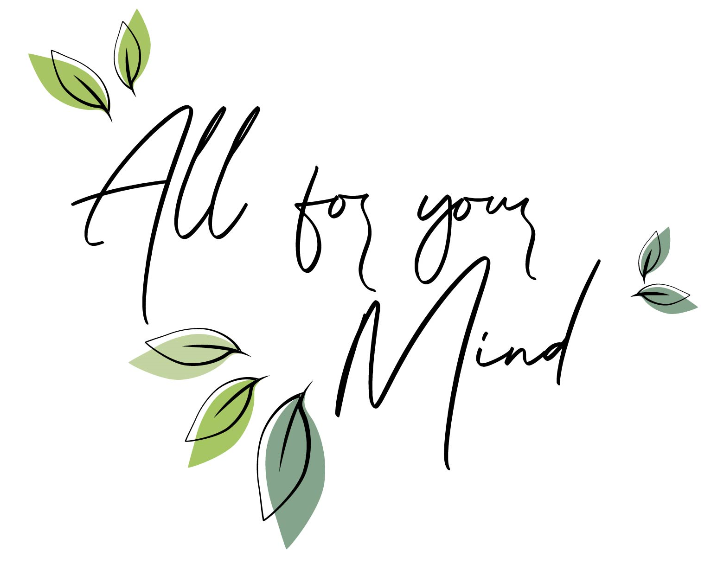
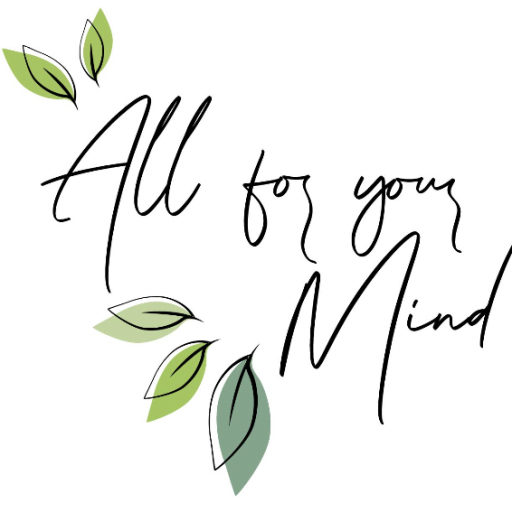

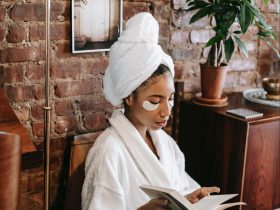
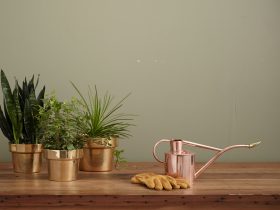

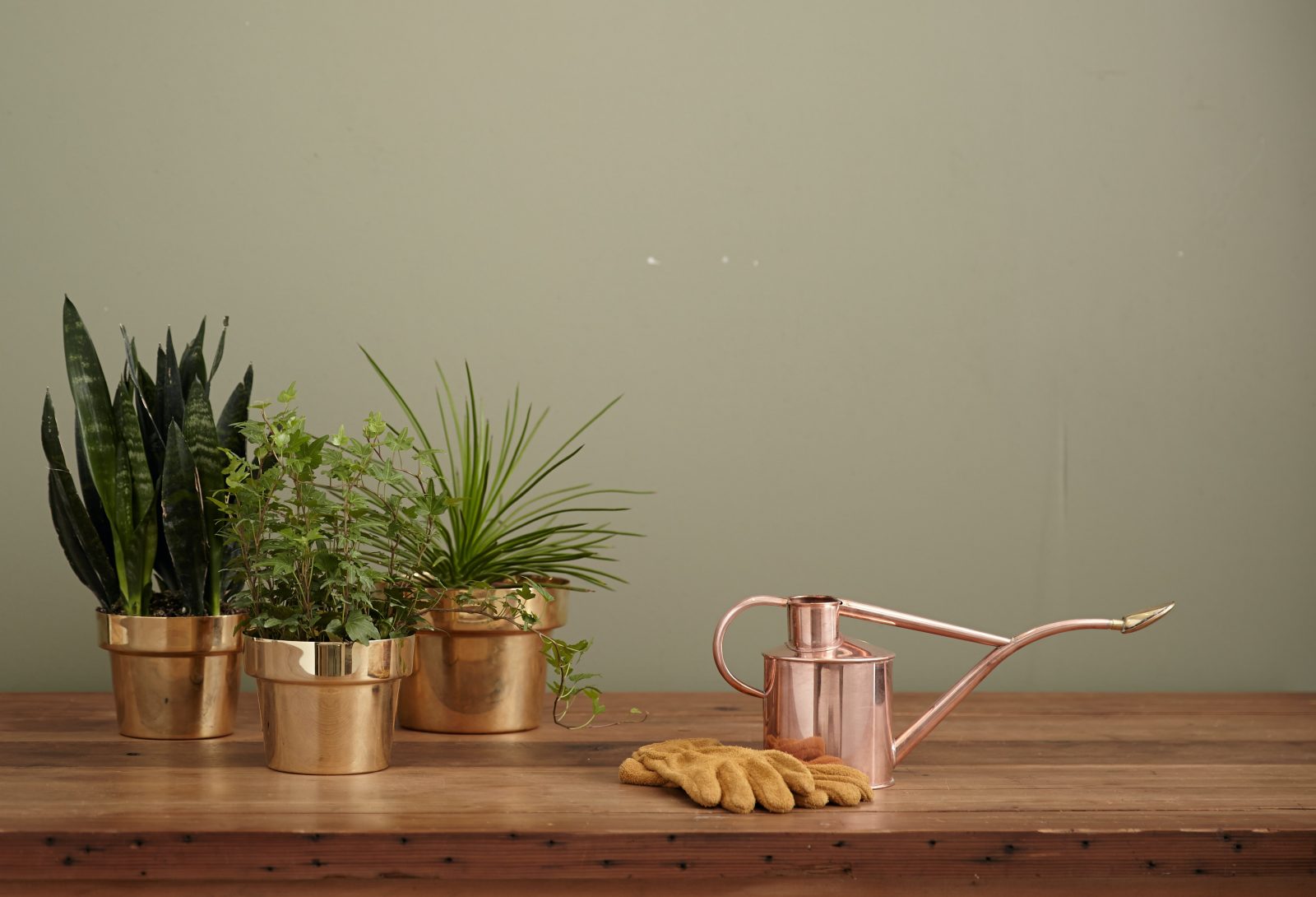






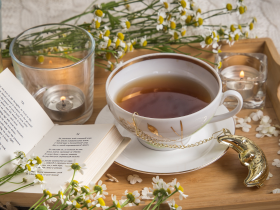


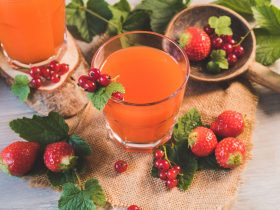
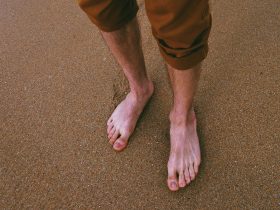

7240 Comments